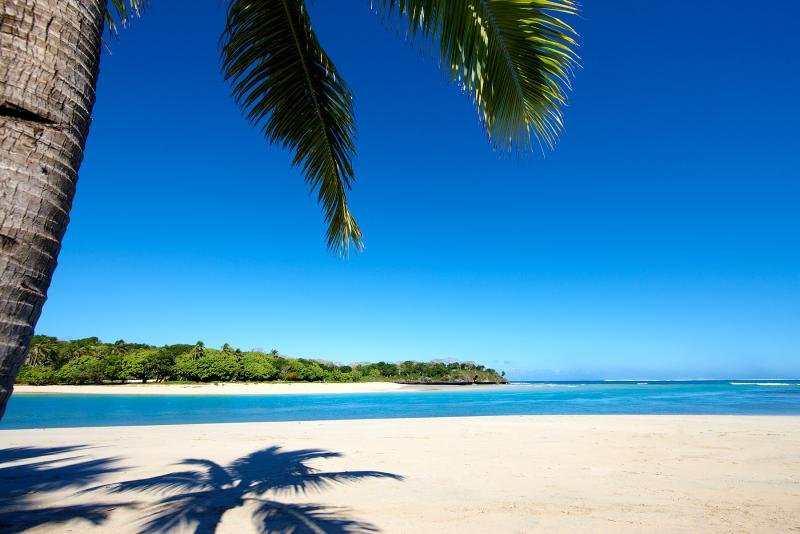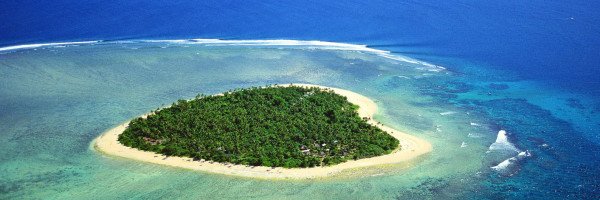Understanding Lami’s Cultural Context
Lami, a picturesque town located just outside Suva, offers visitors a unique glimpse into the rich cultural heritage of Fiji. With its blend of indigenous Fijian traditions and modern influences, Lami showcases a vibrant tapestry of history. The local culture is deeply rooted in communal values, spirituality, and a profound connection to the land and sea. Visitors can explore traditional practices such as meke (dance), yaqona (kava) ceremonies, and handicrafts that have been passed down through generations. One cannot overlook the significance of storytelling in Fijian culture. Oral traditions are vital in preserving history, morals, and cultural lessons, often shared during community gatherings. For those visiting Lami as part of a cruise, engaging with local artisans who practice these traditions can be an enriching experience. You can discover how they weave intricate mats or create stunning tapa cloth, which holds great cultural significance. For New Zealand travelers, this cultural exploration can be a reminder of the importance of preserving indigenous practices. Just as the Māori culture is celebrated in New Zealand, visitors to Lami can appreciate and participate in Fijian traditions. To learn more about Lami and its cultural offerings, visit Fiji Islands.The Art of Traditional Fijian Weaving
Weaving is a cornerstone of Fijian craftsmanship, and Lami is home to talented artisans who have mastered this skill. Traditional Fijian weaving techniques involve using pandanus leaves and coconut fibers to create beautiful mats, baskets, and hats. Each piece is not only functional but also a work of art that reflects the weaver’s creativity and cultural heritage. Visitors to Lami can immerse themselves in this practice by taking part in weaving workshops led by local artisans. These hands-on experiences allow you to learn the intricate techniques involved and create your own souvenirs to take home. Furthermore, these workshops promote sustainable practices, as many artisans source their materials from the surrounding environment, ensuring a minimal ecological footprint. For travelers from New Zealand, this is a great opportunity to explore similarities between Fijian and Māori weaving techniques. Both cultures value the connection to their environment and the stories woven into their crafts. To deepen your understanding of the art of weaving in Lami, check out Fiji Islands.Traditional Fijian Cuisine: A Culinary Journey
Lami’s culinary scene is a delightful reflection of its cultural heritage. Traditional Fijian cuisine often features fresh seafood, root vegetables, and tropical fruits. Dishes like kokoda (a ceviche-like fish dish) and palusami (taro leaves with coconut cream) are staples that showcase the flavors of the islands. Visitors can indulge in these dishes at local eateries or even participate in cooking classes to learn how to prepare them. A unique aspect of Fijian dining is the lovo, an underground oven used for cooking meat and vegetables. This communal cooking method not only nourishes the body but also strengthens community bonds as families and friends gather around to share meals. For New Zealanders, this culinary journey can serve as an exploration of the Pacific flavors that resonate with both cultures. The use of fresh, local ingredients mirrors the Māori approach to cooking, emphasizing the importance of seasonal produce. To discover more about Lami’s culinary offerings, visit Fiji Islands.The Significance of Yaqona in Fijian Culture
Yaqona, or kava, is a traditional beverage made from the root of the kava plant, and it plays a central role in Fijian culture. The ceremonial drinking of yaqona is a way to welcome guests, settle disputes, and celebrate special occasions. In Lami, visitors can witness or partake in yaqona ceremonies, which are an integral part of community life. The preparation of yaqona is a ritual in itself, involving careful processing of the root and the mixing with water. The resulting drink has a calming effect, fostering a sense of connection and relaxation among participants. Visitors can learn about the cultural significance of yaqona and its role in social gatherings, making it a unique aspect of their Lami port visit. For travelers from New Zealand, understanding the cultural practices surrounding yaqona can draw parallels with the Māori concept of manaakitanga, which emphasizes hospitality and respect. Engaging in a yaqona ceremony can offer insights into the communal values shared across cultures. To explore more about this traditional practice, check out Fiji Islands.Exploring Local Arts and Crafts
Lami is a hub for local artisans who create a wide range of traditional crafts, from intricate wood carvings to hand-painted tapa cloth. Each piece tells a story and reflects the cultural heritage of Fiji. Visitors can explore local markets and galleries to discover unique artworks and meet the artisans behind them. Artisans often welcome visitors to their workshops, offering insights into their creative processes. For instance, you can watch as a carver transforms a piece of wood into a beautiful figurine or learn the techniques involved in crafting tapa cloth. Purchasing these pieces not only supports local artists but also allows you to take home a piece of Fijian culture. For New Zealanders, this experience can be an excellent opportunity to appreciate the craftsmanship that exists within both Fijian and Māori cultures. Both communities share a deep respect for artistry and storytelling through their crafts. To find out more about the local arts scene in Lami, visit Fiji Islands.The Role of Festivals in Preserving Culture
Festivals in Lami are vibrant celebrations that showcase the rich cultural heritage of Fiji. Events such as the Hibiscus Festival attract both locals and tourists, featuring traditional music, dance, and food. These festivals provide an opportunity for the community to come together, preserving their customs while also sharing them with visitors. During your port visit to Lami, participating in a festival can offer a deeper understanding of Fijian culture. You can witness traditional performances, enjoy local cuisine, and engage with the community in a lively atmosphere. The energy and enthusiasm of these celebrations reflect the spirit of the Fijian people and their commitment to maintaining their cultural identity. Travelers from New Zealand can draw inspiration from their own cultural festivals, such as Waitangi Day, which celebrate heritage and community. Embracing these experiences in Lami fosters a sense of unity and appreciation for diverse cultures. To learn more about upcoming festivals and events, check out Fiji Islands.Connecting with the Land: Eco-Tourism and Cultural Heritage
Lami’s natural beauty is intertwined with its cultural heritage, making eco-tourism an essential aspect of experiencing the area. The lush landscapes, pristine beaches, and diverse marine life offer numerous opportunities for outdoor activities that respect the environment. Visitors can engage in eco-friendly tours that emphasize sustainable practices and the importance of protecting natural resources. Cultural heritage is also preserved through eco-tourism initiatives that involve local communities. Many tours are led by indigenous guides who share their knowledge of traditional practices and their connection to the land. This immersive experience allows visitors to appreciate the beauty of Lami while learning about the significance of conservation in Fijian culture. For New Zealand travelers, this focus on eco-tourism resonates with the concept of kaitiakitanga, which emphasizes stewardship of the environment. By participating in eco-tourism activities in Lami, visitors can deepen their understanding of how cultural heritage and environmental conservation are interconnected. To find out more about eco-tourism opportunities in Lami, visit Fiji Islands.FAQs
What is the significance of Lami in Fiji’s cultural heritage?
Lami is a vibrant town that serves as a gateway to Fiji’s rich cultural heritage. Its strategic location near Suva allows visitors to explore traditional practices, local artisans, and the unique customs that define Fijian culture.
What can visitors expect during a Lami port visit?
During a Lami port visit, guests can immerse themselves in the local culture by experiencing traditional Fijian ceremonies, crafts, and food. Visitors can engage with local artisans, explore markets, and witness cultural performances that highlight Fiji’s artistic expressions.
Are there traditional Fijian practices that can be observed in Lami?
Yes, Lami is known for showcasing various traditional Fijian practices such as meke dance, weaving, and pottery. Visitors can often find workshops or demonstrations where they can learn about these practices firsthand from local artisans.
How can I support local artisans during my visit to Lami?
Supporting local artisans can be done by purchasing handmade crafts, textiles, and artwork directly from them. Many artisans in Lami welcome visitors to their workshops, providing a unique opportunity to buy authentic Fijian products while supporting the local economy.
What are some must-try traditional dishes in Lami?
During a visit to Lami, be sure to try traditional Fijian dishes such as kokoda (raw fish marinated in citrus juices), palusami (taro leaves with coconut cream), and various root crops. Local eateries and markets often serve these authentic dishes, offering a taste of Fijian culture.
Can visitors participate in cultural events in Lami?
Absolutely! Many cultural events and festivals take place in Lami, providing opportunities for visitors to participate in traditional ceremonies, dance performances, and craft fairs. Checking local event calendars during your visit can help you experience these vibrant cultural moments.
What is the best way to learn about Lami’s cultural heritage?
The best way to learn about Lami’s cultural heritage is by engaging with local communities, visiting cultural centers, and participating in guided tours that focus on traditional practices and artisan crafts. Conversations with locals can also provide valuable insights into their rich history and customs.
References
- Fiji Islands Official Tourism Site – A comprehensive resource for exploring Fiji’s culture, traditions, and local artisans, providing insights into the rich heritage of the islands.
- Fiji Travel – An informative site that highlights traditional Fijian practices, cultural events, and the craftsmanship of local artisans.
- Fiji Live – A news and lifestyle platform that covers various aspects of Fijian culture, including traditional arts and crafts.
- Fiji Culture – This site explores the diverse cultural heritage of Fiji, featuring articles on traditional practices and local artisans.
- The Fiji Times – A respected newspaper that frequently publishes articles on Fijian culture, including features on traditional practices and local artisans’ work.







